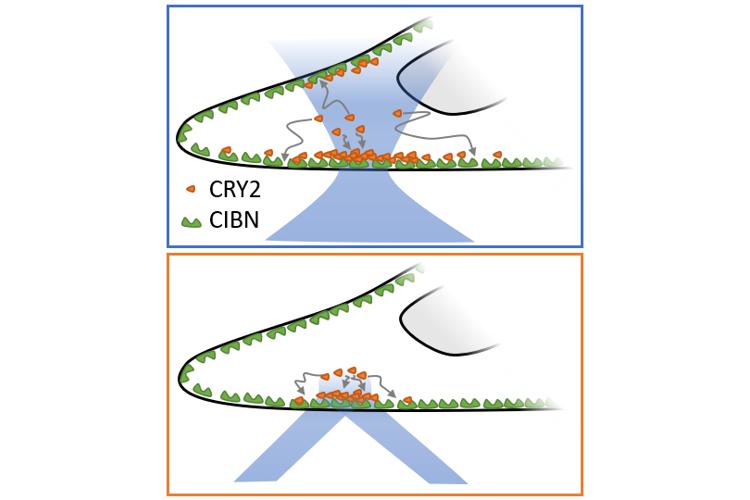- Share
- Share on Facebook
- Share on X
- Share on LinkedIn
Thesis defence
On November 28, 2024

Marc Grosjean (OPTIMA)
Evanescent waves are commonly used in microscopy to image the surface of fluorescent samples such as cell membranes, because light excitation is confined to the interface between the coverslip and the sample over a thickness of approximately one hundred nanometers, allowing good axial selectivity. For imaging purposes, the evanescent wave is typically homogeneous in the transverse plane. However, structuring the evanescent wave in this plane can be beneficial for applications like photo-conversion or photo-activation. The aim of this thesis is to present a method, and describe a device, for generating an evanescent wave with an arbitrary intensity distribution in the transverse plane. We use an array of micro-mirrors to mask a central disk in the objective pupil, corresponding to the propagating waves, and to modulate the wavefront of the transmitted beam, in order to obtain the desired patterns in the plane of the sample. Our device can create and move an evanescent focal point whose lateral dimensions are sub-micron and whose penetration depth is comparable to that of an extended evanescent wave. We explore the possibility of scanning this spot across the field of view to create an evanescent pattern, and then we present a holographic method for shaping the evanescent wave on the sample surface to an arbitrary shape. We compare these two approaches, particularly in terms of temporal resolution. Finally, we explain how and why using such waves can improve the precision and efficiency of photosensitive protein recruitment to the cell membrane during the activation of optogenetic systems. We propose a model to predict the spatial distribution of activated proteins, taking into account their diffusion in the cytoplasm and the kinetics of their attachment to the membrane. Preliminary results of this model, depending on the type of activation, propagative or evanescent wave, are compared with experimental results obtained on the CRY2-CIBN optogenetic system.
Date
14:00
Localisation
LIPhy, salle de conférence
- Share
- Share on Facebook
- Share on X
- Share on LinkedIn